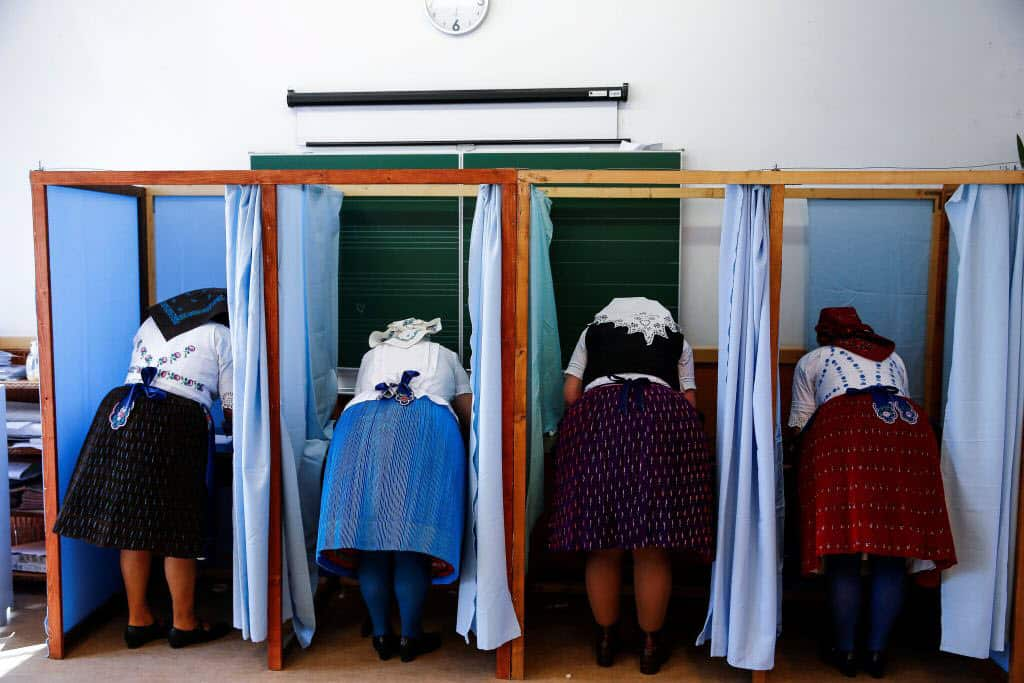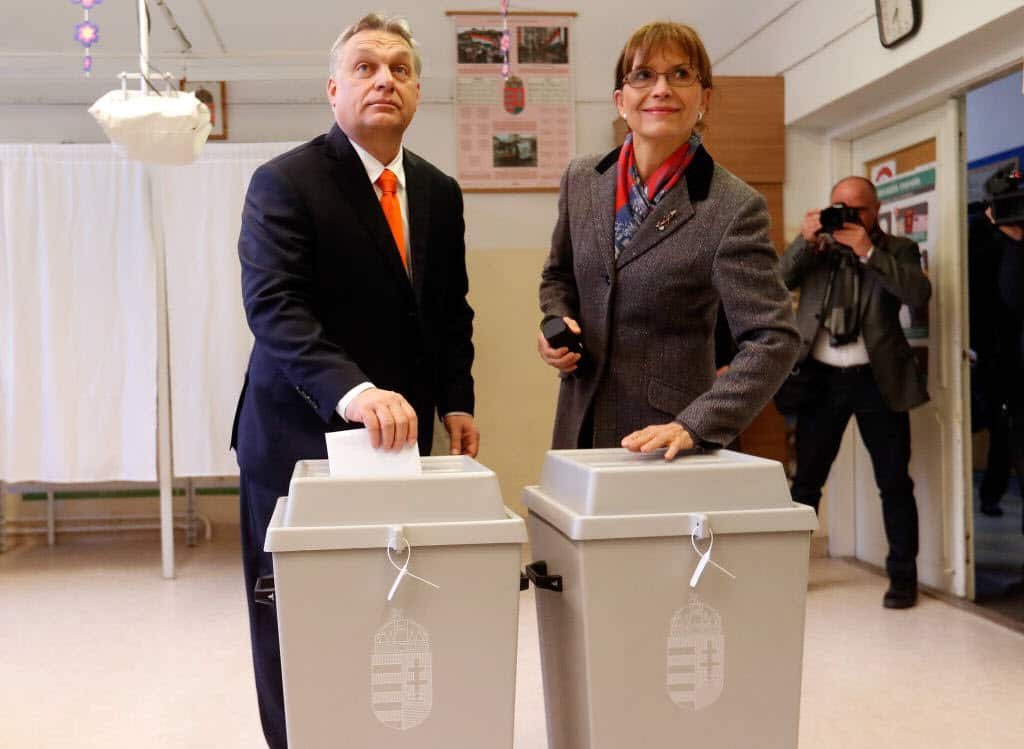Hungarian Prime Minister Viktor Orban's right-wing Fidesz party is leading in the first results announced in Sunday's key parliamentary poll, according to the National Election Office (NVI).
Fidesz is seeking a third consecutive term in office and has won 49.15 percent of votes, with more than 64 percent of votes counted, according to the NVI, which said turnout had reached 68.80 percent.
The Fidesz Party is projected to win with a two-third majority, 134 seats, while the nationalist Jobbik Party is expected to win 27 seats, according to the election office website.

People, dressed in traditional clothes, cast their votes during Hungarian parliamentary election at a polling station in Veresegyhaz, Hungary on April 08, 2018. Source: Getty
Orban has clashed with EU institutions over his rejection of the bloc's refugee resettlement scheme and his clampdown on civil society, while he has drawn plaudits from other nationalist politicians and those on the far right who look to him as an inspiration.
Analysts say the high turnout, especially in opposition-leaning Budapest and other big cities, may help other parties to overcome a mainly first-past-the-post election system which disadvantages the divided opposition.
Opinion polls before the vote had consistently put Orban and Fidesz party 20 or more points clear of their nearest rivals, Jobbik, a far-right party that has been moving towards the centre, and the centre-left Socialists.

Hungarian Prime Minister Viktor Orban and his wife Aniko Levai cast their ballots on April 8,2018, in Budapest, Hungary. Source: Getty
'Not enough freedom'
Orban and his wife voted early in the morning at a school in the leafy Zugliget suburb of Budapest.
"This is a country which has always stepped up for itself, so we can trust in the people, I will accept their decision," he said.
Meanwhile, Jobbik leader Gabor Vona cast his ballot in the northeastern town of Gyongyos, saying that the result would "determine the fate of Hungary not just for four years but... for two generations".

Members of the local election committee check ballots at a polling station during the general election in Debrecen, Hungary, Sunday, April 8, 2018. Source: AP
Pensioner Karin, 65, said: "I'm voting Fidesz of course, who else? Orban is a blessing for the country, and also I think for the whole of Europe."
But in one student neighbourhood in the capital, where long queues saw voters waiting up to an hour to cast their votes, the mood was predominantly anti-Fidesz.
"We feel there is not enough freedom here, I know a lot of people who won't hang around if things don't change so I'm not surprised there is high turnout," said one voter who wished to remain anonymous.
Lurid rhetoric
Even if Fidesz does gain its expected parliamentary majority, analysts will be watching to see whether it falls short of the two-thirds "supermajority" that has enabled it to pass some of its most controversial bills.
These include some of the measures that have put Orban on a collision course with Brussels, such as what critics call his government's erosion of media and judicial independence, as well as its crackdown on civil society groups, particularly those funded by Hungarian-born US billionaire George Soros.
The government has been accused by of using anti-Semitic stereotypes in its relentless campaign against Soros, who is Jewish.
Orban accuses Soros and the organisations he funds of promoting mass Muslim and African immigration into Europe in order to undermine its Christian identity.
Although Orban's actions, including refusing to participate in the EU's refugee resettlement scheme, have sometimes annoyed other European governments, Fidesz is afforded a measure of protection by virtue of its membership of the main centre-right EPP grouping in the European Parliament.
Senior EPP leaders have themselves courted controversy by wishing Orban luck ahead of the poll.
Corruption allegations
Jaroslaw Kaczynski, leader of Poland's governing PiS party, sees an Orban as an ally in his own run-ins with Brussels and gave Orban his endorsement on Friday.
A strong showing for Orban will be welcomed by admirers on the far-right in Europe, such as France's Marine Le Pen, and beyond.
Orban has also cultivated Russian President Vladimir Putin as an ally and has previously cited Russia as an example of the sort of "illiberal state" he hopes to anchor in Hungary.
Opposition parties have lacked close coordination on a national level, but tactical voting could nevertheless represent a danger to Fidesz in 30-40 "swing seats".
As well as hammering home its anti-immigration message, the government has also pointed to Hungary's solid economic growth, which has brought steadily rising wages, and says this would be at risk in the event of an opposition victory.
Share

